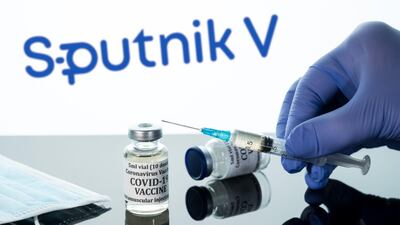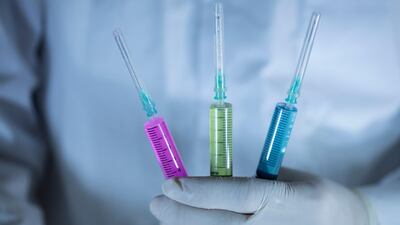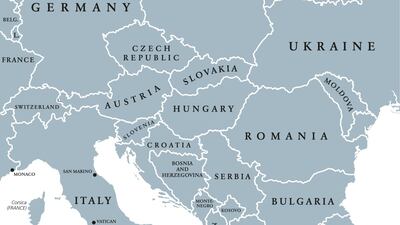Serbia
Country
The Russian Direct Investment Fund says it has 20 technology transfer and production agreements in place in 13 countries across the world.
The company manufacturing Russia's Sputnik V vaccine in Brazil has produced the first batch, but has withdrawn a request to run clinical trials there. France is preparing to immunize the over-18s, and Australia has begun evaluating Vir/GSK’s sotrovimab for use in COVID-19 patients.
The practice of telehealth got the impetus it had long needed during the pandemic, as experiences in Czechia and neighboring economies in eastern Europe show in a regional roundup by Kinstellar.
Drug makers embroiled in the recent bribery allegations in China are likely sweating over whether the next shoe to drop will be US charges under the Foreign Corrupt Practices Act (FCPA), given the Security and Exchange Commission (SEC) has not been shy in going after publicly traded biopharmas the agency determines has violated the law.
German generics firm Stada has sold two of its Russian production plants, Makiz Pharma in Moscow and Skopin Pharmaceutical Plant, Ryazan, in a partial management buy-out. The disposals have cut Stada's workforce by 386 employees, a fact that the company trumpeted as having enable it to meet ahead of schedule "a significant restructuring goal" of its 2010 "Build the Future" programme: it has now cut its personnel by 10%, or around 800 full-time positions, ahead of the target of the end of 2013.
Pfizer has paid $60.2 million in fines and disgorgement of profits plus interest over violations of the US Foreign Corrupt Practices Act (FCPA). But the pharma giant avoided criminal prosecution and long-term government oversight of itself and its US executives by reporting bribes in several European and Asian countries to the Department of Justice (DOJ) and Securities and Exchange Commission (SEC) before an employee or third-party could allege illegal activity.
The private US biopharmaceutical company Sorbent Therapeutics has presented promising Phase II data for its lead drug candidate, CLP1001, at a late-breaking clinical trials session at the ESC Heart Failure Congress in Belgrade, Serbia.
Merck has presented previously unreported data showing that combination HIV therapy containing its integrase inhibitor, Isentress (raltegravir), confers better efficacy than that containing efavirenz (Bristol-Myers Squibb's Sustiva) in treatment-naïve adult patients.
The likelihood that Serbian pharmaceutical wholesalers will default on their debts has led German wholesaler Stada, which has a leading position in the market, to book a one-off pre-tax special impairment of €97 million for the third quarter. In particular, Stada is owed money by the country's largest wholesaler, Velefarm, which is majority owned by the state and just under 20% owned by Stada itself.
Stada, one of the largest Germany-based wholesalers, increased its sales by 3% to €1.2 billion in the first nine months of this year. The company attributed its modest performance mainly to liquidity problems of its subsidiaries in Serbia, one of its most important individual markets. These problems resulted from hospitals' non-payments and/or delayed payments to wholesalers.
Stada's domestic sales fell by 8% to €260 million in the first six months of this year, while those in Serbia, the company's seventh largest individual market, fell by 21% to €36 million. The decline was partially offset by the 24% growth of sales to €97 million in Russia, its second most important national market.
Galenika, Serbia's largest pharmaceutical manufacturer, has opened a new plant for solid pharmaceuticals, which is expected to double its production, make the company more competitive on the domestic market and help to increase exports.
Serbia's national privatisation agency has announced that it is no longer selling its 70% stake in Galenika, the country's largest pharmaceutical manufacturer, and that no tenders will be organised this year. It said that no bidders could meet the requirements it had outlined.
Stada has said that its financial results this year will depend on non-operational factors, such as currency exchange rates – especially those of the Russian rouble and Serbian dinar – and specific effects of the global financial crisis. These factors may be contradictory and different in different markets, but the company anticipates some positive influences on its sales.
Stada says that it is unlikely to reach the same level of sales this year that it reached in 2008, even though fourth-quarter sales were higher than in the same period last year. However, a sales increase for the whole year, along with the target earnings before interest, tax, depreciation and amortisation of €250 million, are still possible, if they are adjusted for the effects from acquisitions and disposals as well as currency effects, it noted.
Cardio3 Biosciences, a Belgian biotech firm, has started testing C-Cure, its leading product for the treatment of heart failure, in Serbia's Institute for Cardiovascular Diseases.
Stada's sales in the first six months of this year were hit by weakened currencies, particularly in Russia, Serbia and the UK, and fell by 8% to €755.2 million. Its earnings before interest, tax, depreciation and amortisation decreased by 16% to €124 million and net profit was down by more than 20% to €48.3 million. Earnings per share reduced from €1.07 in the first half of 2008 to €0.82.
The international pharmaceutical industry association IFPMA, which represents multinational drug firms, invited Indian and Chinese firms to be involved in discussions with the World Health Organization on manufacturing a potential swine influenza A (H1N1) vaccine earlier this week.
Serbia's health minister, Professor Tomica Milosavljevic, has launched a new computerised medical information system for hospitals which so far has connected six medical centres in the country's Kolubara region. It allows a "swift and efficient" electronic transfer of medical information, the minister said.
Stada's sales grew by 5% to €1.6 billion last year, and the company reported increasing sales for the 13th year in a row. Growth of its international business, which accounted for almost 70% of the total, was more significant, increasing by 9% to €1.1 billion.
ADVERTISEMENT



